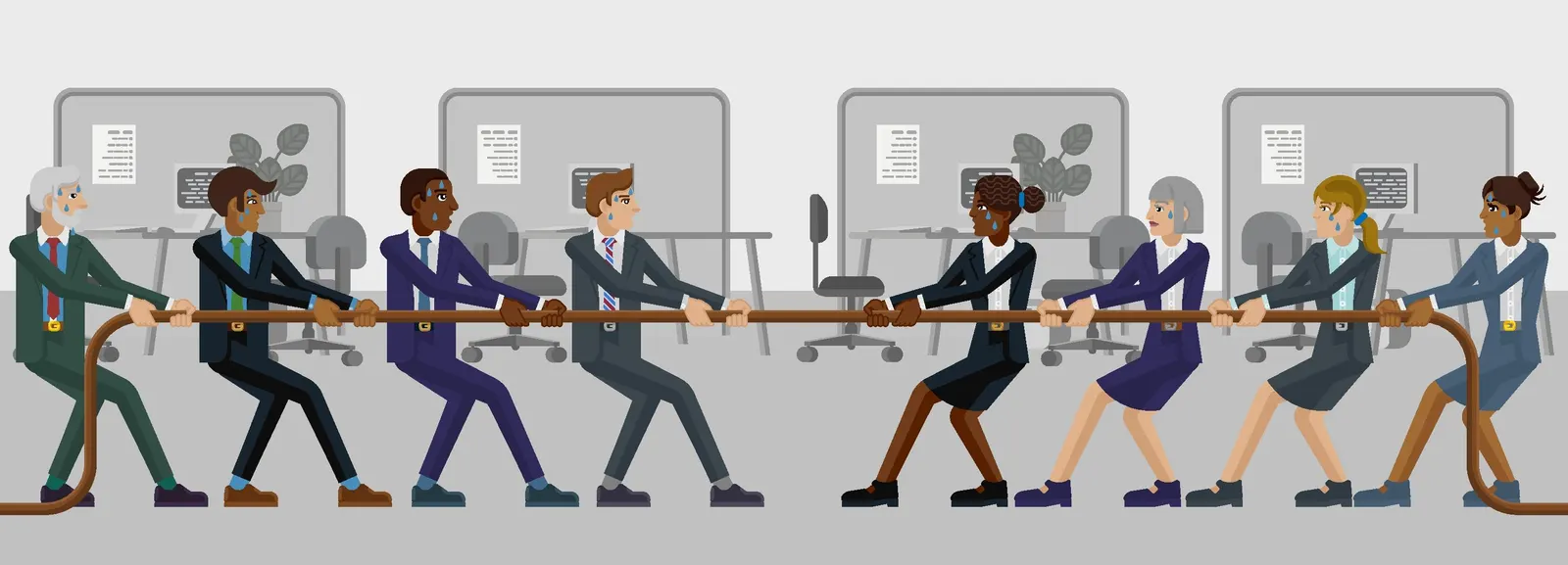By Contributor,Dr. Diane Hamilton
Copyright forbes

How Fear Of Workplace Competition Can Impact Teams And Collaboration
I spent decades in sales, where competition was a big part of being successful. Hitting numbers and striving to close the next big deal kept me motivated. Many people who come from sales, or even those who have never worked in sales, still carry the belief that competition is the key to getting ahead. In my research on what inhibits curiosity, I found that one of the aspects of what people fear is the need to compete with others. This can keep people from asking questions, suggesting ideas, or contributing insights that might spark innovation. Competition becomes something very different when you move into a team environment. On a team, treating colleagues like rivals can be detrimental. When workplace competition threatens curiosity, employees and the organization suffer.
Why Workplace Competition Creates Fear In Teams
Why Workplace Competition Creates Fear In Teams
Fear of competition is one of the strongest reasons employees hold back. Instead of asking a clarifying question or offering a new perspective, they stay quiet to protect their reputation. Meetings end with fewer ideas suggested because people worry how they might look compared to someone else if they speak up. Team settings are unlike working individually when that natural desire to compete has been nurtured. It can be challenging for people to recognize they are holding back because they fear not being as innovative or looking as smart as others on the team. When the environment rewards curiosity and cooperation, employees are more willing to take chances, share ideas, and build on one another’s thinking.
How Workplace Competition Affects Former Sales Professionals
How Workplace Competition Affects Former Sales Professionals
Shifting from a competitive sales role to a collaborative team environment is not easy. In sales, individual performance is measured and rewarded. When someone with that background moves into a team role, they may continue to act as if they are competing against peers instead of working alongside them. They may guard information, resist asking for help, or focus on personal wins at the expense of team outcomes. Leaders can help by recognizing those who support team learning, share insights, and contribute to the overall success of the team. This helps naturally competitive people see that the same drive can now be used to strengthen their team.
Why Workplace Competition Reduces Collaboration
Why Workplace Competition Reduces Collaboration
You have probably heard some version of the phrase, “Don’t come to me with problems unless you also have solutions.” The intention was to inspire critical thinking and shut down complainers. The outcome was silence. People stopped raising concerns unless they already had the answer. Many were not qualified to have that answer, and it gave the impression that leaders did not want to know if there were problems. This type of culture can severely limit suggestions from employees, especially those who are competitive. That leads to missed opportunities for growth and innovation.
How Workplace Competition Can Be Reframed As Learning
How Workplace Competition Can Be Reframed As Learning
There will always be someone who knows more than you. Rather than view that as a threat, treat it as an opportunity. Curiosity thrives when people see their peers as resources instead of rivals. Leaders can set the tone by admitting when they do not know something and asking for input. They can recognize employees who share knowledge and create opportunities for colleagues to learn from one another. This approach shifts the focus from outperforming others to learning together, which builds trust and opens the door to innovation.
Practical Ways To Reduce Fear Of Workplace Competition
MORE FOR YOU
Practical Ways To Reduce Fear Of Workplace Competition
Organizations that want to balance competition with curiosity can:
Encourage leaders to model curiosity by asking questions and admitting when they need help.
Recognize employees who share insights, not only those who achieve individual wins.
Provide safe spaces for employees to ask questions without judgment.
Treat mistakes as learning opportunities rather than failures.
Reward team contributions as well as individual accomplishments.
Why Workplace Competition Matters For Business Results
Why Workplace Competition Matters For Business Results
Fear of competition does not only affect individuals, it affects organizations. When employees stay quiet, problems grow larger, and innovation stalls. Google’s Project Aristotle found that psychological safety was the top factor in high-performing teams. Employees who feel safe to ask questions and admit gaps in knowledge consistently outperform those who feel pressure to compete with their peers. Competition may remain the fuel for sales roles, but in collaborative teams, curiosity, openness, and shared trust drive the best results.
Building A Healthier Approach To Workplace Competition
Building A Healthier Approach To Workplace Competition
Workplace competition has its place, but it can be problematic in the wrong setting. In sales, it motivates, but in teams, it can cause friction. Leaders who help employees understand when competition is healthy and when it holds people back create stronger, more collaborative workplaces. By recognizing that competition can influence curiosity, and by rewarding those who overcome their fear of competing with team members, organizations can help both individuals and teams thrive.
Editorial StandardsReprints & Permissions



